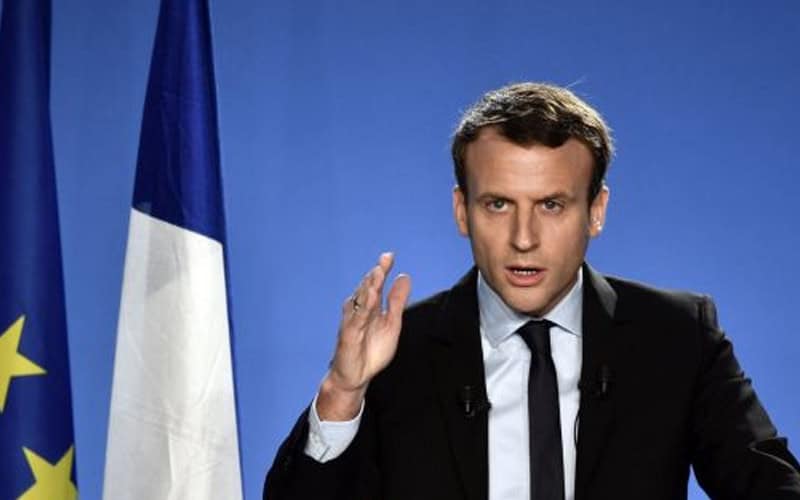PARIS: French leader Emmanuel Macron backed the idea of a month of further talks to find a solution to Brexit while ruling out major compromises as he met British Prime Minister Boris Johnson for talks on Thursday.
Like German Chancellor Angela Merkel on Wednesday, Macron supported allowing another 30 days to find a solution to the vexed issue of the Irish border which has bedevilled negotiations since 2017.
“We need to try to have a useful month,” Macron said alongside Johnson who insisted that solutions were “readily available” to prevent checkpoints returning in divided Ireland.
But Macron, who admitted he had a reputation as the “hardest in the gang” on Brexit, has rejected Johnson’s calls to scrap a key arrangement for Ireland negotiated between the EU and former British premier Theresa May.
At stake is the so-called “backstop”, which is a provision guaranteeing that border checks will not return between EU member Ireland and Northern Ireland which is part of Britain.
Johnson considers the backstop to be “anti-democratic” and an affront to British sovereignty because it will require London to keep its regulations aligned with the EU during a transition exit period.
“The technical solutions are readily available (to avoid checkpoints) and they have been discussed at great length,” Johnson said. “You can have trusted trader schemes, you can have electronic pre-clearing.”
The EU argues the backstop is necessary to avoid the re-emergence of checkpoints which could lead to a return of fighting on the divided island where anti-British violence has claimed thousands of lives.
“I want to be very clear. In the coming month, we will not find a new withdrawal agreement that is far from the fundamentals,” Macron said at the Elysee palace in central Paris.
Since Johnson’s ascent to power last month, the chances of a “no deal” Brexit on October 31 have risen, which economists see as likely to wreak economic damage on Britain and the EU.
“The EU and member states need to take the possibility of a ‘no deal’ outcome much more seriously than before,” a senior EU official told reporters in Brussels on Thursday on condition of anonymity.
A French official said on Wednesday that this was becoming the “most likely” scenario.
– Glimmer of hope? –
The Paris visit was the second leg of Johnson’s first foreign trip as prime minister.
On Wednesday, he was in Berlin for talks with Merkel who appeared to offer a glimmer of hope by saying Britain should try to find a breakthrough to the issue over the next month.
“I want a deal,” Johnson told Macron. “I think we can get a deal and a good deal.”
He added that he had been “powerfully encouraged” by his talks with Merkel. “I admire that ‘can do’ spirit that she seemed to have.”
But many Brexit watchers see Merkel’s remarks as fitting a pattern in which she has often been more conciliatory in public about Brexit than Macron, whose abrasive remarks have caused anger in London in the past.
“There is not the width of cigarette paper between Paris and Berlin on these issues,” a senior aide to Macron said on Wednesday on condition of anonymity.
The EU official in Brussels added that the EU was “a little concerned based on what we heard yesterday (in Berlin).”
“We are waiting for new facts, workable ideas,” the official added.
– Blame game –
Johnson, who has deployed his French language skills to charm diplomats in Paris before, has staked his leadership on withdrawing Britain from the EU by the current deadline of October 31 — “do or die”.
Some analysts see a risk of relations between Macron and Johnson becoming stormy in public, which could lead to a blame game about a “no deal” Brexit.
Johnson reportedly once called the French “turds” over their stance on Brexit during his time as foreign secretary — remarks he later said he could not recall.
But Macron pre-empted any attempt to deflect blame onto the European side during a press conference on Wednesday before Johnson’s arrival.
“It will be the responsibility of the British government, always, because firstly it was the British people that decided Brexit, and the British government has the possibility up to the last second to revoke Article 50,” he said.
Article 50 is the legal mechanism used by EU members states to withdraw from the bloc which was triggered by Britain in March 2017.
At the weekend, Macron, Merkel and Johnson will meet US President Donald Trump, a vocal supporter of both Brexit and Johnson, at a G7 summit in the French seaside resort of Biarritz.

